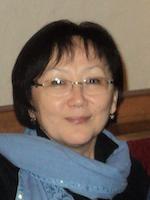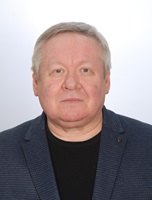Bilingualism in language education in secondary schools of the Republic of Tuva
DOI:
https://doi.org/10.25178/nit.2021.1.14Keywords:
Tuva; bilingualism; Tuvan-Russian bilingualism; Tuvan language; Russian language; language policy; school system of education; language education; linguistic shiftAbstract
The article examines the contemporary situation in bilingual language education within the school system of the Republic of Tuva, comparing it with the same processes throughout Russia. In the Post-Soviet period, all regions saw the rise of an ambiguous state within language education due to specific demography and language policy.
The history of changes in language education in Tuva is inseparable from the opposing moves in Russia’s national and linguistic policy. Alongside with the decisive and positive transformations in Tuvan culture, some losses were also inevitable, such as that of sociocultural and linguistic vitality of Tuvan language within the educational system. Seen in the context of the developments of all minority languages both in Russia and around the world, this process is most likely historically determined.
Unlike other ‘ethnic republics’ of Russia, Tuva has long remained mostly monolingual. Nevertheless, over 80 years of the history of Tuva within Russia means that at least two generations of Tuvans have grown up in the new sociocultural environment. Numerous changes in linguistic situation alongside with the absence of continuity in the policy of Tuvan bilingualism (largely due to similar lack of continuity in the language policy of Russia) gave rise to a complex phenomenon of collective bilingualism. Within the system of education in Tuva, the tendency is towards a redistribution of spheres of usage of Russian and Tuvan languages. Just as any other language in Russia, the latter obviously does not stand the competition against the former, especially given that since 2018 it has practically stopped functioning as a language of education. Moreover, the early introduction of Russian in bilingual pre-school education also narrows down the sphere of use of Tuvan as a language in the subordinate position.
This disbalance in the bilingual situation can potentially lead to disruptions in the intergenerational transfer of Tuvan culture.
References
Aleksandrova, N. Sh. (2018) Ischeznovenie iazykov, estestvennyi bilingvizm i nelineinaia dinamika [The disappearance of languages, natural bilingualism, and nonlinear dynamics]. In: Vos'maia mezhdunarodnaia konferentsiia po kognitivnoi nauke [Eighth International Conference on Cognitive Science]: Abstracts of reports. Svetlogorsk, October 18–21, 2018 / ed. by A. K. Krylov and V. D. Solov'ev. Moscow, Institut psikhologii RAN Publ. 1368 p. Pp. 35–37. (In Russ.).
Aleksandrova, N. Sh. (2020) Bilingvizm i drugie proiavleniia funktsionirovaniia iazykovoi sistemy v svete plastichnosti mozga [Bilingualism and other manifestations of the functioning of the language system in light of brain plasticity]. Philological sciences. Scientific essays of higher education, no. 6 (2), pp. 170–176. (In Russ.).
Aref'ev, A. L. (2018) Sotsiologiia iazyka. Natsional'nye i inostrannye iazyki v sisteme obrazovaniia [Sociology of language. National and foreign languages in the education system]. 2nd ed. Moscow, Yurait. 311 p. (In Russ.).
Bakhtikireeva, U. M. (2020) Izuchenie i opisanie natsional'nykh obrazov korennykh narodov RF posredstvom nositeleĭ iazyka, fol'klora i literatury — osoznannaia neobkhodimost' [Studying and describing national images of the indigenous peoples of the Russian Federation through the eyes of native speakers of language, folklore and literature: A conscious need]. In: Sokhranenie i razvitie iazykov i kul'tur korennykh narodov Sibiri [Preserving and developing languages and cultures of the indigenous peoples of Siberia]: proceedings of the 4th All-Russian Research Conference (Abakan, October 1–2, 2020) / ed. by T.G. Borgoiakova. Abakan, Izdatel'stvo FGBOU VO «Khakasskiĭ gosudarstvennyĭ universitet im. N. F. Katanova. 232 p. Pp. 14–22. (In Russ.).
Belikov, V. I. and Krysin, L. P. (2001) Sotsiolingvistika [Sociolinguistics]: a textbook for universities. Moscow, Ros. gos. gumanit. un-t. 317 p. (In Russ.).
Borgoiakova, T. G. and Bitkeeva, A. N. (2020) Tuvinskii iazyk v pravovom i funktsional'nom izmerenii [Tuvan language in legal and functional aspect]. New Research of Tuva, no. 1, pp. 50–59. (In Russ.). DOI: https://doi.org/10.25178/nit.2020.1.4
Bavuu-Surun, M. V. (2010) Tuvinskii iazyk na sovremennom etape: obrazovatel'nyi aspekt [Tuvan language on modern stage: educational aspect]. New Research of Tuva, no. 3, pp. 57–71 [online] Available at: https://nit.tuva.asia/nit/article/view/500 (access date: 20.01.2021). (In Russ.).
Bavuu-Surun, M. V. (2016) Voprosy sozdaniia elektronnykh resursov tuvinskogo iazyka: nekotorye itogi, neotlozhnye zadachi i perspektivy [Creating electronic resources on Tuvan language: preliminary results, current challenges and prospects]. New Research of Tuva, no. 4, pp. 4–27 [online] Available at: https://nit.tuva.asia/nit/article/view/610 (access date: 20.01.2021). (In Russ.).
Bogdanov, S. I., Marusenko, M. A. and Marusenko, N. M. (2020) Iazykovye perepisi i monitoringi kak instrument natsional'noi iazykovoi politiki [Language census and monitoring as an instrument of national language policy]. St. Petersburg, Izd-vo RGPU im. A. I. Gertsena. 344 p. (In Russ.).
Dagbazhyk, A. S. (2016) Struktura slovarnoi stat'i Natsional'nogo korpusa tuvinskogo iazyka [The structure of an entry in the National corpus of Tuvan language]. New Research of Tuva, no. 4, pp. 36–44 [online] Available at: https://nit.tuva.asia/nit/article/view/612 (access date: 20.01.2021). (In Russ.).
Dongak, Ch. B. (2020) Iazykovaia politika i problema kontaktnogo bilingvizma v natsional'nykh respublikakh Rossii (na primerakh respublik Tatarstan, Tyva i Sakha (Yakutiia) [Language policy and the problem of contact bilingualism in the national Republics of Russia: the cases of the Republics of Tatarstan, Tuva and Sakha (Yakutia)]. Vestnik Tuvinskogo gosudarstvennogo universiteta. Issue 1. Sotsial'nye i gumanitarnye nauki, no. 4 (68), pp. 63–72. (In Russ.).
Mamardashvili, M. K. (1992) Zakony inakomysliia [The laws of dissent]. Zdes' i teper', no. 1, pp. 85–93. (In Russ.).
Marusenko, M. A. (2015) Iazyki i natsional'naia identichnost': sovremennye vyzovy natsional'nomu edinstvu i territorial'noi tselostnosti [Languages and National identity: Modern Challenges to National Unity and Territorial Integrity]. Moscow, Nauchno-politicheskaia kniga. 575 p. (In Russ.).
Mongush, Ch. M. (2016) Metatekstovaia razmetka v Natsional'nom korpuse tuvinskogo iazyka: struktura i funktsional'nye vozmozhnosti [A metatextual markup in the national corpus of Tuvan language: the structure and functionality]. New Research of Tuva, no. 4, pp. 45–52 [online] Available at: https://nit.tuva.asia/nit/article/view/613 (access date: 20.01.2021). (In Russ.).
Sat, Sh. Ch. (1973) Formirovanie i razvitie tuvinskogo natsional'nogo literaturnogo iazyka [The Formation and development of the Tuvan literary language]. Kyzyl, Tuvan book publisher. 193 p. (In Russ.).
Tovuu, S. S., Kara-Sal, N. M. and Sanchaa, T. O. (2020) Matematicheskoe obrazovanie v usloviiakh razvitiia sistemy obrazovaniia v Respublike Tyva [Mathematical education in the development of the educational system in the Republic of Tuva]. New Research of Tuva, no. 4, pp. 45–63. (In Russ.). DOI: www.doi.org/10.25178/nit.2020.4.4
Ondar, M. V. (2016) Baza dannykh tekstov tuvinskogo geroicheskogo eposa: pervyi etap [The structure of an entry in the National corpus of Tuvan language]. New Research of Tuva, no. 4, pp. 66–76 [online] Available at: https://nit.tuva.asia/nit/article/view/616 (access date: 20.01.2021). (In Russ.).
Oorzhak, B. Ch., Khertek, A. B., Kuzhuget, M. A. and Ondar, V. S. (2016) Semanticheskaia razmetka imeni dlia Elektronnogo korpusa tekstov tuvinskogo iazyka [Semantic markup of nouns and adjectives for the Electronic corpus of texts in Tuvan language]. New Research of Tuva, no. 4, pp. 53–65 [online] Available at: https://nit.tuva.asia/nit/article/view/615 (access date: 20.01.2021). (In Russ.).
Ochur, N. M. (2015) Razvitie dvuiazychiia v shkolakh Tuvy v postsovetskii period [The development of bilingualism in schools of Tuva in Post-soviet period]. TSPU Bulletin, no. 4 (157), pp. 93–97. (In Russ.).
Sereedar, N. Ch. (2018) Tuvinskii iazyk kak sredstvo obshcheniia tuvintsev: problemy i perspektivy [Tuvan language as a means of communication among Tuvans: Problems and prospects]. New Research of Tuva, no. 1, pp. 4–19. (In Russ.). DOI: https://www.doi.org/10.25178/nit.2018.1.1
Suleimenova, E. D. (2006) Arkhetip «gadkogo utenka» i iazykovaia identichnost' [The archetype of the “ugly duckling” and language identity]. In: Proceedings of International research conference “Language and identity”, (Akhanov Readings), 12–13 May / ed. by N.Zh. Shaimerdenova et al. Almaty, Қazaқ universiteti. 361 p. Pp. 15–26. (In Russ.).
Tsybenova, Ch. S. (2013) Sovremennaia iazykovaia situatsiia v Respublike Tyva : sotsiopsikholingvisticheskii aspekt [The Contemporary Linguistic Situation in the Republic of Tyva: The Socio- and Psycholinguistic aspect] : Abstract of Diss. … Candidate of Philology. Ulan-Ude. 24 p. (In Russ.).
Tsybenova, Ch. S. (2018) Funktsional'noe razvitie tuvinskogo iazyka: diakhronicheskii aspekt [Functional development of the Tuva language: the diachronic aspect]. Tomsk Journal LING & ANTHRO, no. 3 (21), pp. 56–66. (In Russ.).
Tsybenova, Ch. S. (2019) Sotsial'naia kharakteristika iazykovoi situatsii v Respublike Tyva [Language Situation in the Republic of Tuva: Social Characteristics.]. Oriental Studies, no. 3, pp. 460–477. (In Russ.). DOI: https://doi.org/10.22162/2619-0990-2019-43-3-460-477
Published
How to Cite
For citation:
Arefiev A. L., Bakhtikireeva U. M. and Sinyachkin V. P. Bilingualism in language education in secondary schools of the Republic of Tuva. New Research of Tuva, 2021, no. 1, pp. 255-272. (In Russ.). DOI: https://www.doi.org/10.25178/nit.2021.1.14
Issue
Section

This work is licensed under a Creative Commons Attribution-NonCommercial 4.0 International License.

Author(s) license holder(s) grant rights for their work to the journal (grantee of a license) under the simple non-exclusive open license in accordance with Art. 1286.1 «Open license for a research work, work of literature or fine arts», Civil Code of the Russian Federation.
New Research of Tuva publishes articles under the Creative Commons Attribution-NonCommercial license (CC BY-NC).
Since it is an open license, author(s) reserve the right to upload the article to their institutional repository, submit it to another journal (if it allows republications), or republish it on their own website (in full, or in part).
However, several conditions apply here:
a) The republished version must always contain the name(s) and affiliation(s) of the author(s), the original title and the hyperlink to the original version on the New Research of Tuva website;
b) It must be in open access, free of charge, and no category of readers must be in any way whatsoever advantaged over general readership.
c) should the contribution be submitted elsewhere by its author(s) without substantial modification (30% or more of original text unchanged), the body of the article should contain a disclaimer that the original version was published in New Research of Tuva (with a link to the respective page)
The CC-BY-NC is a non-revocable license which applies worldwide and lasts for the duration of the work’s copyright.











